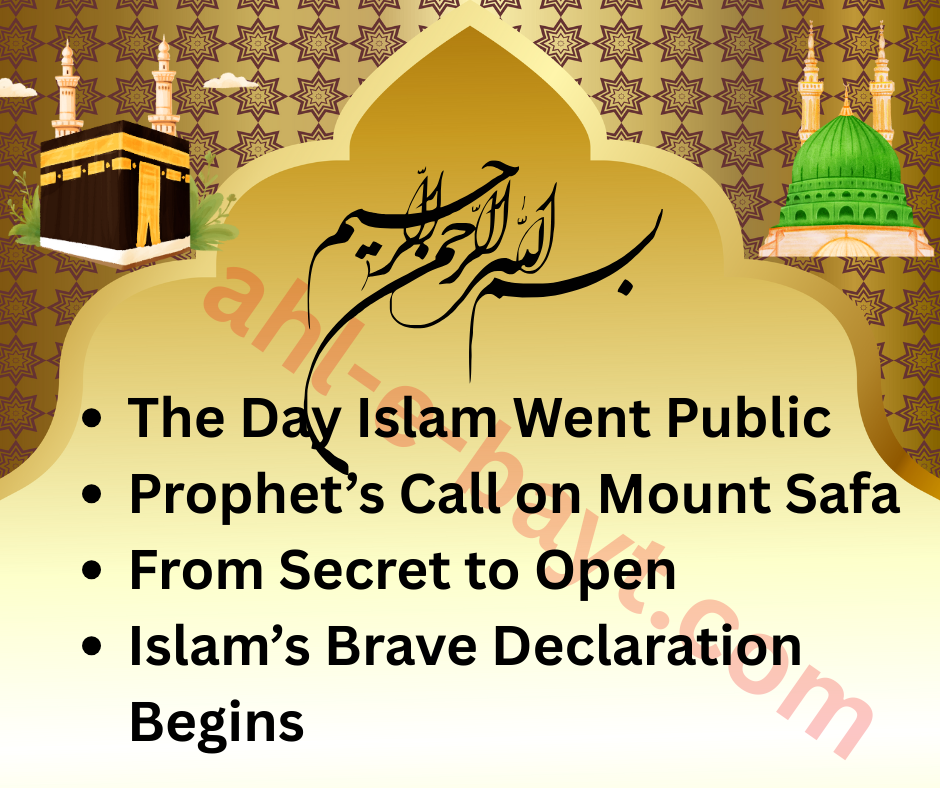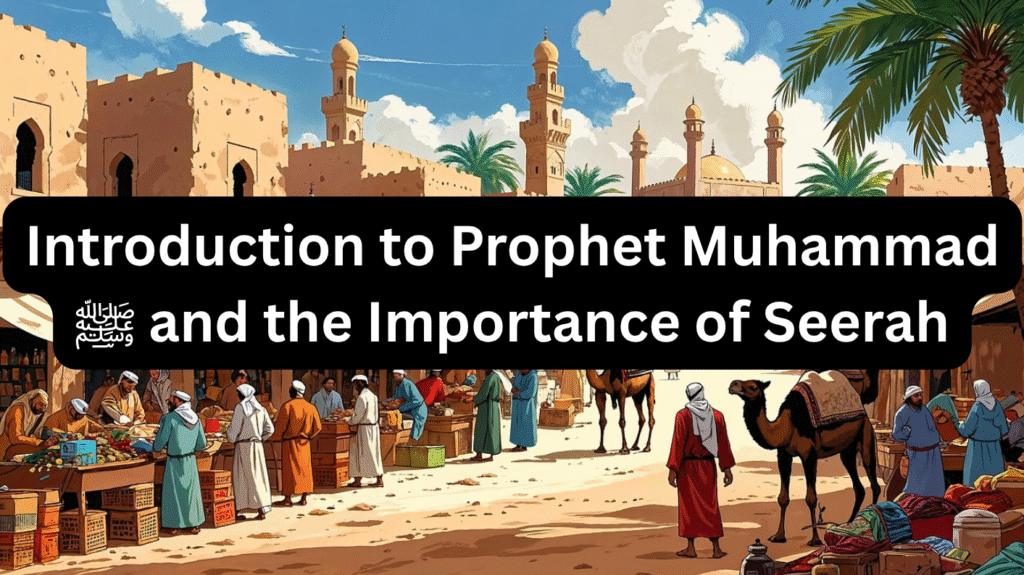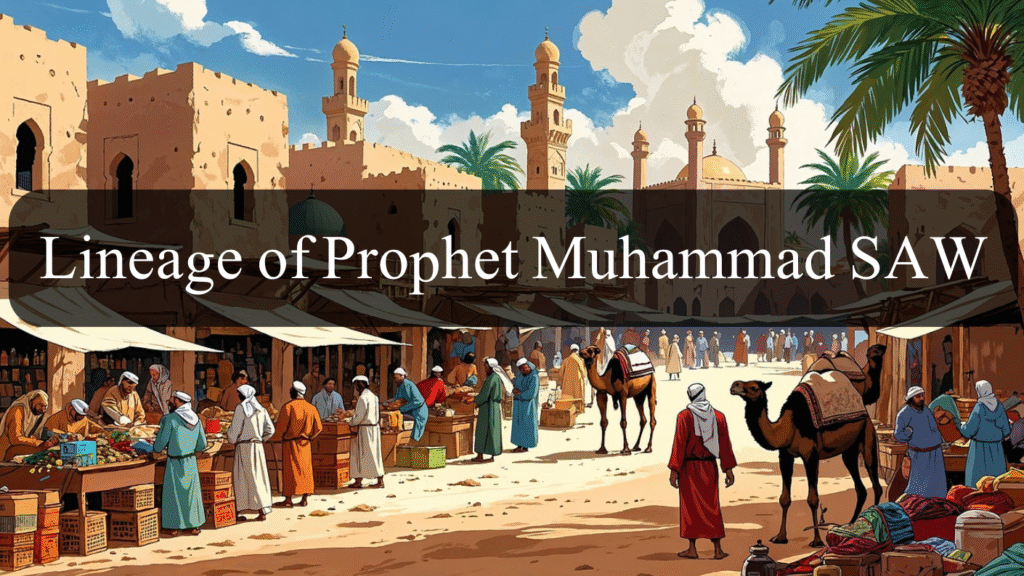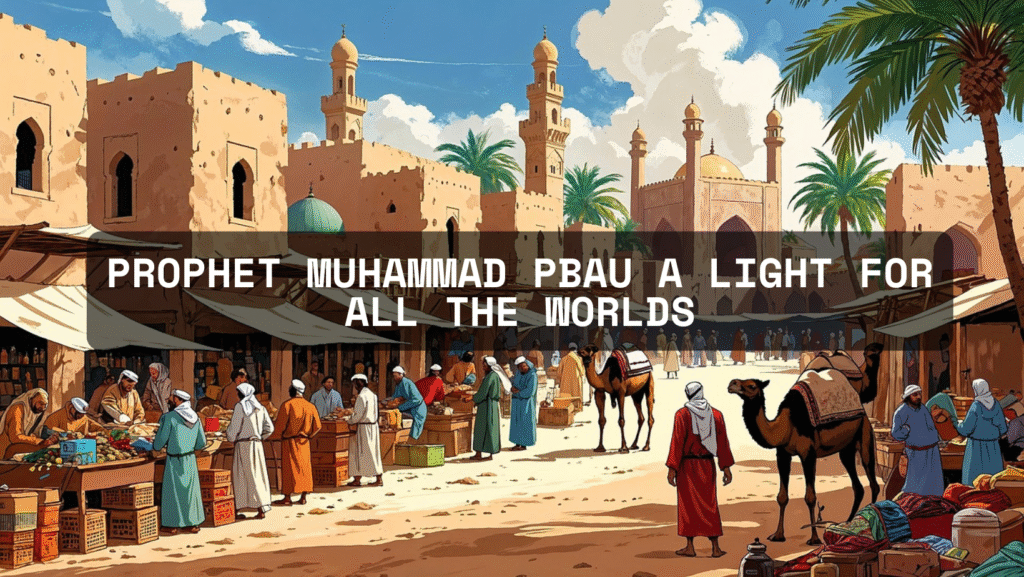Islam prophets brought guidance to humanity in different eras, and the message of Islam, which began quietly and privately, entered a new phase after three years: the Public Call to Islam. At this point, the Prophet Muhammad (PBUH), under divine instruction, called his people openly towards the worship of one God and the rejection of idolatry. This moment—standing on Mount Safa—marked a turning point in the history of Islam and the life of the Prophet. It was a monumental act of courage, clarity, and truth that would forever shape the message of Islam.
Divine Command to Islam Prophets to Go Public
After three years of secret preaching and developing a core group of sincere followers, Prophet Muhammad (PBUH) received a clear command from Allah:
“And warn your closest kindred.” (Surah Ash-Shu‘ara: 214)
This divine order marked a shift in the prophetic mission. The Islam prophets, especially Muhammad (PBUH), were never passive messengers. Their duty was to deliver the truth with wisdom and resilience, even if it meant facing opposition. By obeying this command, the Prophet (PBUH) took the first step in confronting the falsehood and injustice that had deeply embedded itself in Makkah’s culture.
Mount Safa – A Historic Stand by the Islam Prophets
In a powerful and symbolic gesture, the Prophet (PBUH) climbed Mount Safa—a well-known elevation near the Kaaba in Makkah used traditionally for important announcements. It was a strategic place to capture the attention of every tribe and family in the city.
He called out loudly to each of the major tribes of Quraysh by name. This was not merely a gathering; it was a serious call to reflection and truth.
“O Banu Fihr! O Banu Adi! If I were to tell you that an army is advancing to attack you from behind the mountain, would you believe me?”
They replied: “Yes, we have never known you to lie.”
Then the Prophet (PBUH) said:
“I am a warner to you before a severe punishment. I have come to you with a clear message from Allah. Save yourselves from the Fire!”
This moment was one of the most significant public stands taken by any of the Islam prophets, as it directly challenged the core beliefs of an idolatrous society.
Reaction from Quraysh
The message pierced the pride and tradition of the Quraysh. The open call to abandon idols, tribal arrogance, and ancestral customs in favor of one true God was not only unexpected but deeply offensive to the leaders of Makkah. The most vocal and immediate response came from his own uncle:
Abu Lahab angrily interrupted: “May you perish! Did you gather us here just for this?”
This insult was a blatant rejection of the Prophet’s (PBUH) sincerity. Allah immediately revealed:
Surah Al-Masad, a harsh rebuke of Abu Lahab and his enmity.
Following this, the Quraysh intensified their efforts to oppose Islam. They began to publicly mock, threaten, bribe, and even torture those who followed the Prophet (PBUH). The climate of hostility escalated rapidly, turning Makkah into a battleground of belief and disbelief.
The Courage of the Islam Prophets | Especially Prophet Muhammad (PBUH)
The Prophet Muhammad (PBUH) stood as a model of patience and determination, traits shared by all Islam prophets. Despite the growing threats, he did not falter. He knew his mission was divinely appointed and that he walked the path of earlier prophets like Ibrahim (A.S.), Musa (A.S.), and Isa (A.S.).
His message was not political or materialistic it was deeply moral and spiritual:
Worship one God alone
End injustice and exploitation
Abandon idol worship
Live with compassion, fairness, and integrity
He did not raise weapons or provoke violence—his power was in truth, words, and character. He encouraged his followers to endure suffering with patience, and this steadfastness became a hallmark of Islamic dawah.
Impact of the Public Call by Islam Prophets
Clear Divide Created: People could no longer stay neutral. They had to choose between embracing truth or clinging to falsehood.
Islamic Identity Formed: The followers of Muhammad (PBUH) began to form a visible, distinct group bound by faith, not tribe or bloodline.
Opposition Intensified: Makkah’s elite viewed Islam as a threat to their power and began social and physical persecution of Muslims.
Hearts Were Stirred: Many who initially ignored the message became curious. Some were moved by the Prophet’s honesty and character.
Legacy Began: This public declaration planted the seeds of a faith that would one day span continents.
Conclusion
The Declaration on Mount Safa was a turning point not just in the life of Prophet Muhammad (PBUH), but in the story of all Islam prophets. It was a moment when truth was declared boldly in the face of disbelief. It reminds us that real change starts with a voice of courage standing alone if necessary.
Among all Islam prophets, Muhammad (PBUH) emerged as the Seal of the Prophets, and his public call to Islam was the spark that ignited a spiritual revolution whose flame still burns in the hearts of billions today.





